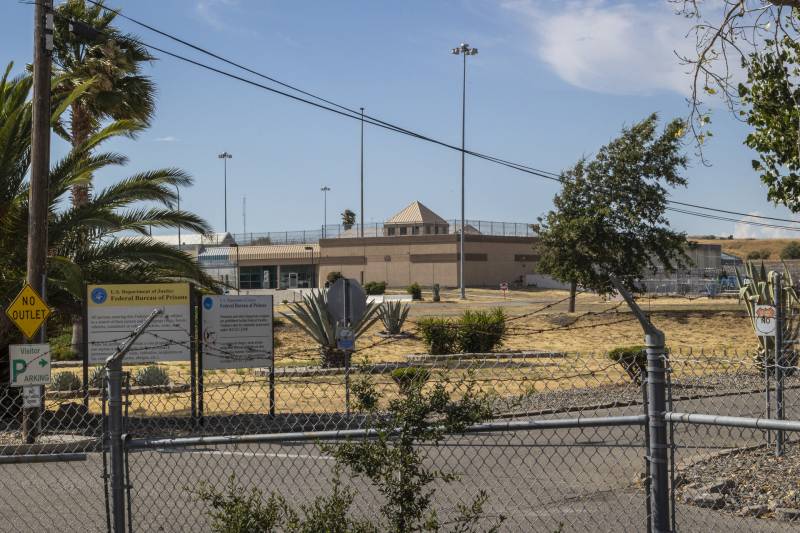Nearly all 605 people who were incarcerated at a scandal-ridden federal women’s prison in the East Bay are being forced to transfer to different facilities across the country, sending some thousands of miles away from their families and attorneys.
“I’m depressed, I’m sad, I’m mad, I just have all these emotions,” said Ashley Castillo, who was transferred from the Federal Correctional Institution (FCI) Dublin to FCI Aliceville in Alabama over the weekend. “Alabama is really far from home, I don’t want to be here.”
Last week, guards began loading women on buses to transfer them to the small handful of other low-security federal women’s prisons around the country, located in Alabama, Connecticut, Florida, Minnesota, Texas and West Virginia.
Castillo’s relocation involved a multi-leg bus ride to Las Vegas, Nevada, where she boarded a plane to Atlanta, Georgia. From there, she was loaded on another bus, for a nearly four-hour trip to the remote town of Aliceville. The bus had one non-flush toilet with a “see-through” privacy sheet, she said, but women were not even able to take off their handcuffs to use it.
“It was disgusting. I was on my menstrual [cycle] and I bled through my underwear,” Castillo told KQED on a collect call from FCI Aliceville. “Just putting on or taking off a pad was so hard and the shackles hurt so badly because they would tighten them like we were going to escape or something.”
Last October, long before Castillo knew FCI Dublin would eventually be shuttered, she filed a motion for early compassionate release, a process that allows individuals to be released early from prison due to extraordinary circumstances. After the transfers started this month, dozens of other people incarcerated at the facility have filed similar motions, according to court filings and attorneys.
“I suffer from extreme trauma and anxiety and high blood pressure. We were told abruptly that we were relocating and had only 20 minutes to pack out (sic) all my personal belongings,” reads one such recent request to BOP from an incarcerated person at FCI Dublin. “This is unfair, unhuman.”

